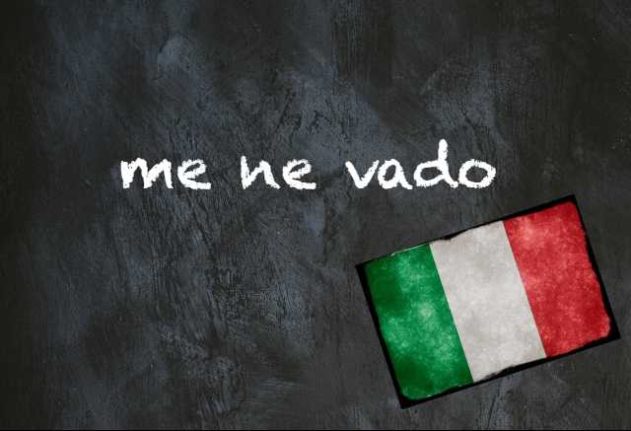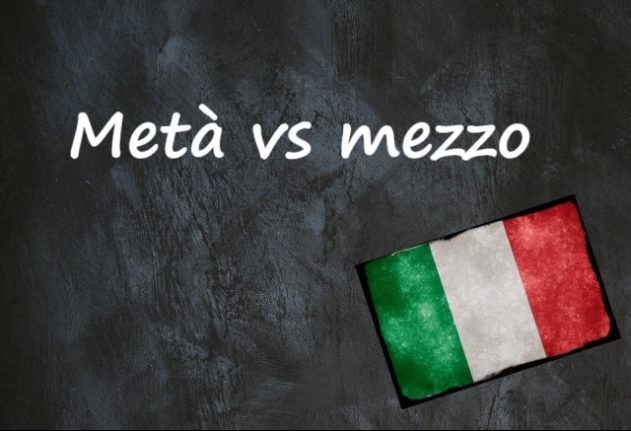(Io) vado – the first person singular of ‘to go’, andare – is one of the first phrases you’ll learn as a foreigner studying Italian.
But after you’ve been listening to people speak the language for a while, you’ll notice that the alternative formulation me ne vado, from andarsene, also comes up regularly in conversation.
What is the difference between the basic andare and andarsene?
The most simple explanation is that andare is simply to go somewhere, while andarsene is specifically to go away from somewhere.
Stasera vado a vedere uno spettacolo al teatro.
This evening I’m going to see a play at the theatre.
OK ragà, ora devo andarmene.
OK guys, I have to leave now.
Andarsene is a pronominal verb, which is just a verb with pronouns added on. In this case there are two additions: the reflexive pronouns mi/ti/si/ci/vi, followed by the pronoun ne.
While the reflexive pronoun in andarsene has to change (along with the conjugation of the verb itself) to agree with the sentence subject, the ne always stays the same. You can think of it as standing in for ‘from here/there’ or ‘of here/there’ – so me ne vado can mean ‘I’m getting out of here’ or ‘I’m leaving (from here)’.
You might have noticed that the reflexive pronoun in the phrase me ne vado isn’t mi, but me. That’s because when reflexive pronouns are directly followed by another pronoun in Italian, the ‘i’ changes to ‘e’; so here we have me ne vado/te ne vai/se ne va/se ne vanno/ce ne andiamo/ve ne andate.
Adding pronoun combinations like se ne to an Italian verb often adds a subtle emotional nuance, either positive or negative. So while (io) vado is neutral, me ne vado might have an abrupt or irritated quality (if, say, you’re storming out of the room after an argument) or an upbeat one (if you’re heading off to do something nice). It’s something you can only really infer from context and tone.
Se continuate a parlare così se ne andranno.
If you keep on talking like that they’re going to walk out.
Ce ne andiamo a fare una bella passeggiata?
Shall we head out for a nice walk?
Note that andarsene can also refer to someone passing away or dying, in a way that andare can’t.
La nonna se n’è andata ieri sera.
Grandma left us yesterday evening.
If you want an alternative to andarsene, in most contexts you can use andare via to mean much the same thing.
Vattene!
Get out of here!
Va’ via!
Beat it!

The main difference is that you can use andarsene in a sentence to describe either going away from somewhere or leaving to go to somewhere else or to do something else, whereas with andare via you’d generally only reference the place being left.
Dice che se ne andrà dalla Francia.
He says he’s leaving France.
Fra un mese vanno via da Londra.
In a month they’re leaving London.
Me ne sono andata a vedere un film.
I went to go see a film.
If you want to add emphasis, you can use andarsene and andare via in combination.
Appena abbiamo la possibilità, ce ne andremo via da qui.
As soon as we get the chance, we’re busting out of here.
Se ne sono andati via insieme in macchina circa un’ora fa.
They drove off together about an hour ago.
And with that, ce ne andiamo.

Do you have an Italian word you’d like us to feature? If so, please email us with your suggestion.



 Please whitelist us to continue reading.
Please whitelist us to continue reading.
Member comments